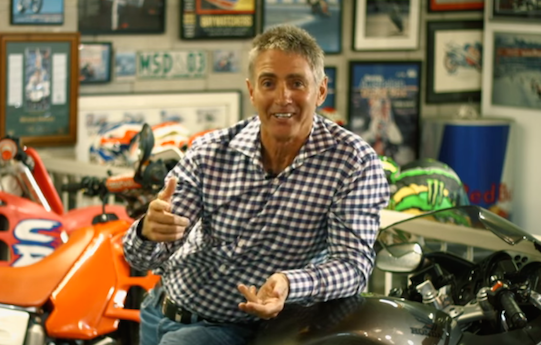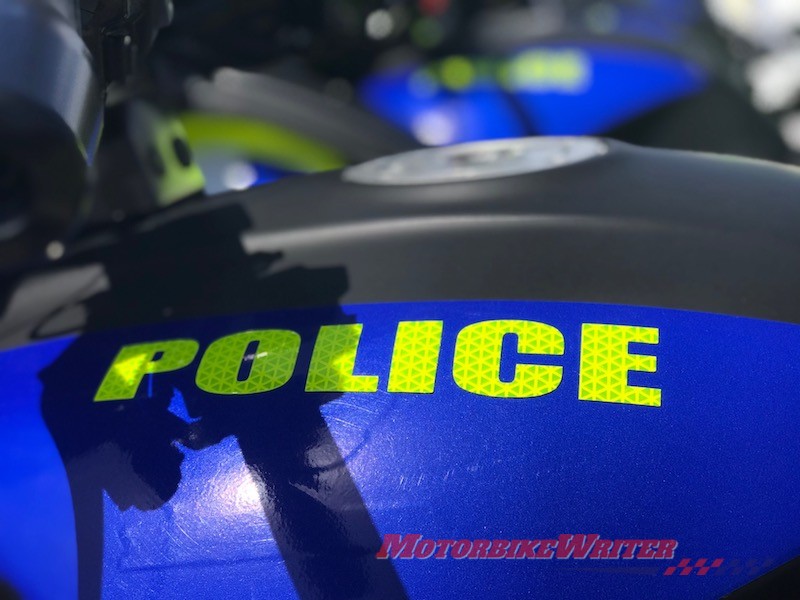Queensland Police will this morning (21 July, 2018) preach the road-craft theories of five-time world motorcycle champion Mick Doohan which he calls “riders’ sixth sense”.
His theories are presented in a 2016 series of Queensland Government videos teaching riders to recognise and exercise their sixth sense when riding.
The sixth sense is the instinct motorcycle riders develop to read the road and conditions, stay focused and be aware of potential hazards when they ride.
Motorcycle riders from the Springwood Road Policing Unit will be at Springwood Suzuki, 112 Kingston Road, Underwood, Logan City from 9am to 2pm today to preach the sixth sense to riders.
In a police press release, Senior Sergeant Michael Carige says they will discuss the “potential risks of riding in urban streets, hinterland and rural roads, and the factors that can impact rider safety”.
“Police will be happy to answer questions you might have about motorcycle safety,” the release says.
Representatives from the Department of Transport and Main Roads and Logan City Council will also attend.
Sixth sense videos
The five videos in the Sixth Sense series represent Mick’s theories on riding on the road, even though we believe Mick rarely does.
In fact, Mick isn’t featured in any of the video’s riding sequences which are performed on some of the most scenic and challenging roads in South East Queensland.
Controversially, Mick also doesn’t recommend advanced rider training with professionals.
Instead, he suggests riders already have an innate sixth sense; “that unique instinct all riders share that helps us read the road, the conditions, the potential hazards and stay focused and in control”.
He refers to the sixth sense as perceiving the correct speed for corners, being aware of erratic movements of other vehicles and knowing when peer pressure puts you out of your comfort zone and skill level.
“The more you develop and hone your (sixth sense), the better your chances are of surviving to ride another day,” he says.
The videos are included on a government website called ”Join the drive”.
After his intro video explaining his sixth sense theory, there are four more videos:
In “Cornering”, he says if you “start looking short or fixating on that gum tree at the side of the road the chances are you’re gonna be shaking the koalas out of it real soon”.
In “Group Riding”, Mick says it’s “always a good idea to swap over at rest breaks to share the load”.
In “Returned Riders” he recommends buying a new bike rather than “dusting off the old one” because they are “safer, more rideable and more reliable than ever”.
In “Road Craft”, he suggests you give yourself more time in the wet. “Set off earlier and take it easier on the ride. Or choose not to hit the road at all, that works every time.”
Mick has featured in several rider safety advertising campaigns before, including one in 2014 with the RACQ and Motorbike Writer.
He has some interesting and thought-provoking theories in the Sixth Sense videos.
A few may actually surprise some riders: invest in a helmet intercom; ride in staggered formation in groups; and do not trail brake through a corner.
“Try to stay off the brakes as much as you can, it sounds wrong if you’ve got your turning-in point and your approach speed right you’ll be in control and the bike should handle the corner no worries,” he says.



